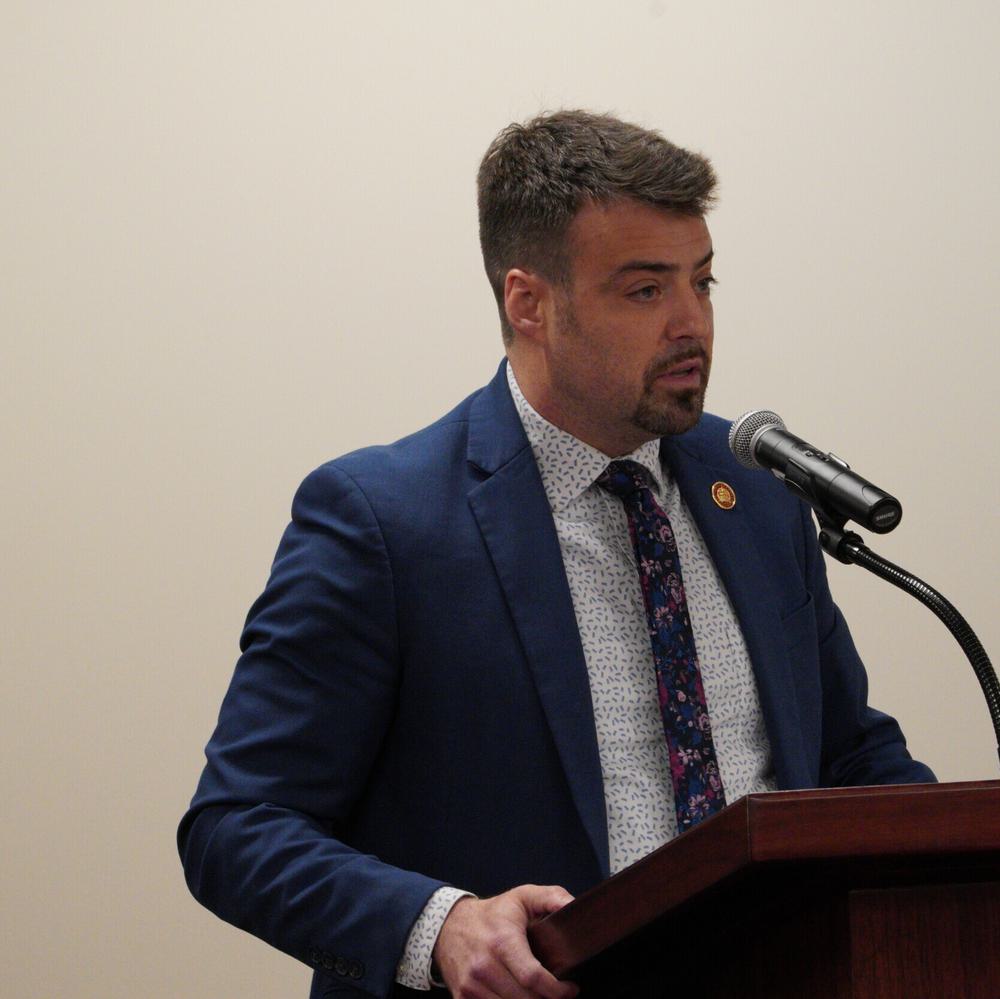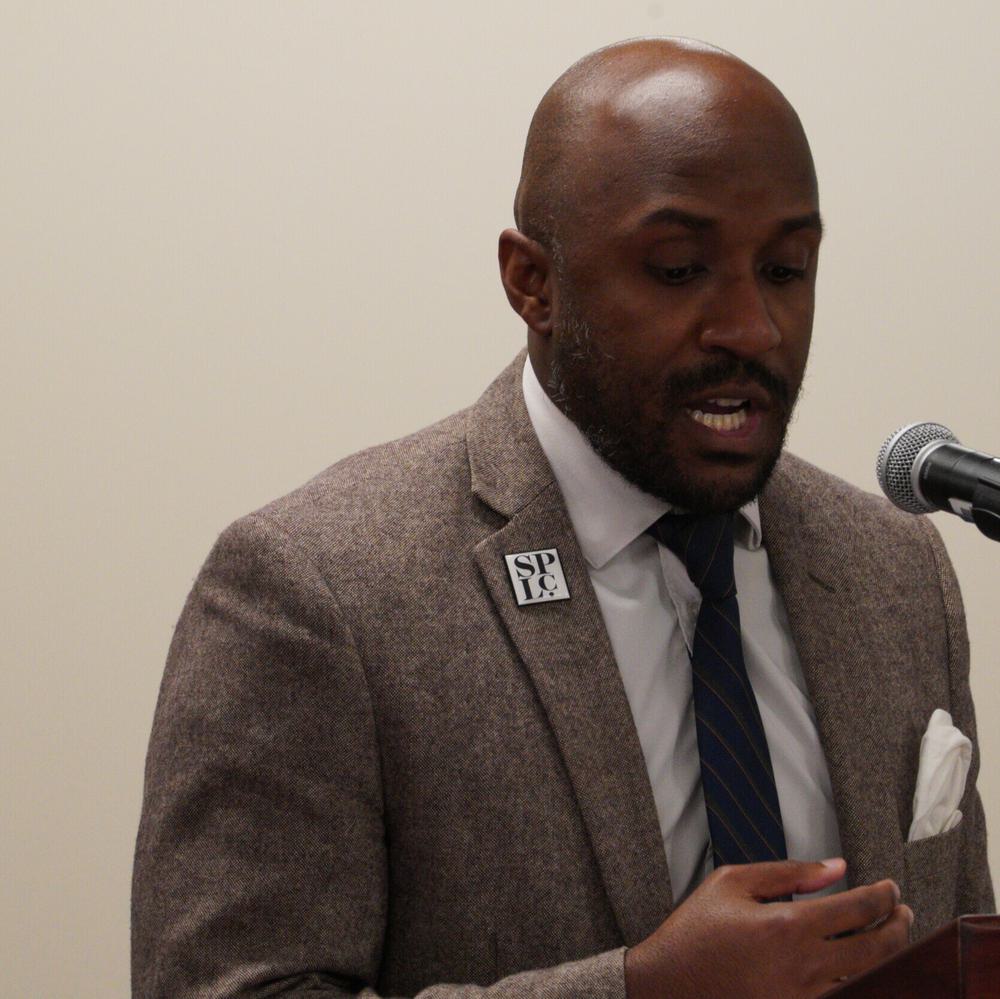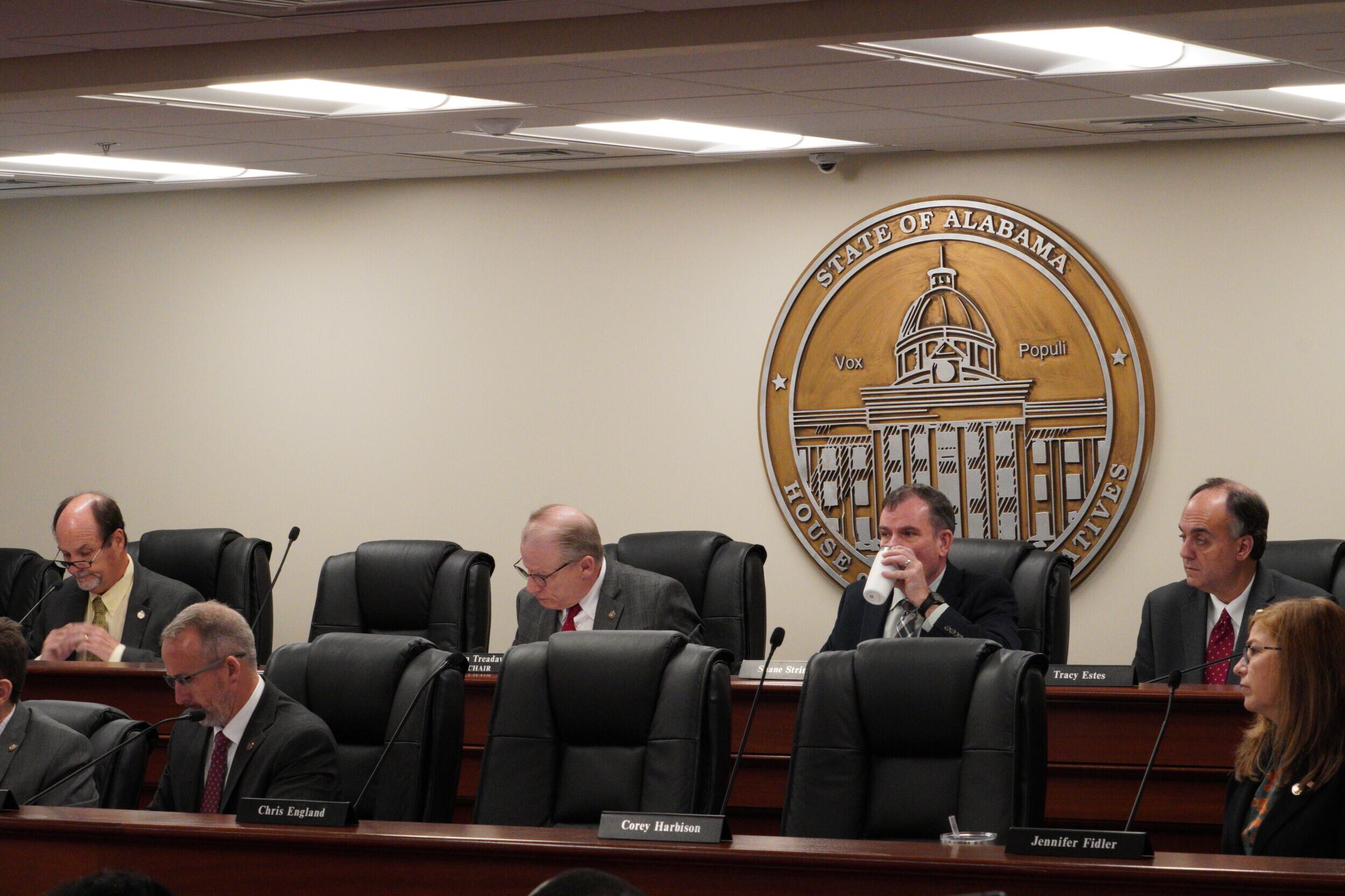MONTGOMERY — The House Public Safety and Homeland Security Committee held a public hearing on Wednesday on legislation that would allow Alabama law enforcement to work in tandem with federal agencies to enforce immigration laws.
House Bill 376 (HB376), also called the Laken Riley Act, would bolster the ability of Alabama law enforcement agencies to further enforce immigration law.
The bill's name comes from the February abduction and murder of Laken Riley, who was an undergraduate student at the Augusta University nursing school and a former student at the University of Georgia. The suspect in the case is a 26-year-old illegal immigrant, Jose Antonio Ibarra, from Venezuela, who police say abducted her while she was jogging on the UGA campus.
The bill states that "state and local law enforcement agencies may enter into memorandums of understanding and agreements with the United States Department of Justice, the Department of Homeland Security, and any other federal agency for the purpose of enforcing federal immigration and customs laws and the detention, removal, and investigation of illegal aliens and the immigration status of any person in this state."
The bill would additionally:
· Require state and local government employees to maintain information relating to the immigration status of any individual.
· Allow state and local law enforcement officers to transport an illegal alien to the federal government's custody.
· Allow local law enforcement to arrest an illegal alien based on his or her status as an illegal alien or for a violation of any federal immigration law.
· Create standard procedures for the intake and booking of illegal aliens and foreign nationals in county and municipal jails.
· Require jails to honor immigration detainer requests issued by the Department of Homeland Security in certain circumstances.
· Require quarterly reports by county and municipal jails regarding foreign nationals.
Yarbrough addressed the committee, saying the bill's purpose is to prevent another Laken Riley situation and protect the state from what amounts to an “invasion.”

“Our federal government could prevent all of this immediately if they would enforce the law and do their job,” Yarbrough said. “And so, House Bill 376 empowers local law enforcement to participate in the enforcement of immigration laws in connection with the federal government in a way that will hopefully prevent another Laken Riley situation from ever happening and also help give a more formal structure to the detaining, tracking and transmitting of illegal aliens to the proper authorities.”
Yarbrough accepted two relatively benign amendments to the legislation before proceeding with the public hearing. He also read messages from law enforcement supporting the legislation, including a recorded video message from former U.S. Navy SEAL Jared Hudson, who founded the Alabama-based anti-human trafficking non-profit Covenant Rescue Group.
“House Bill 376 is going to give local law enforcement the ability to target individuals who are here illegally and who are targeting us,” Hudson said in the message. “This is not going to give them the ability to go after individuals that aren’t doing anything or don’t have any nefarious intent, and that’s important to me.”
He continued, “We work with local law enforcement agencies in Alabama, [and] this year made 26 felony arrests for people who were showing up to have sex with children or sell children for sex. We’ve done this from as far North in Alabama as you can go to as far South in Alabama as you can go. Of those 26 arrests, we’ve averaged two illegal immigrants per operation, so that’s six total. Six ICE [Immigration Customs and Enforcement] holds per operation.”
The public hearing exclusively featured immigration advocates speaking in opposition to the bill for the perceived discrimination against illegal immigrants or Hispanic people in general.
Ana Ockert, an advocate with the Hispanic and Immigrant Center of Alabama (HICA), said the legislation would further endanger women and children fleeing violent situations for illegal aliens, who already are skeptical of law enforcement due to their immigration status.
“Some may argue that HB376 also threatens civil liberties by potentially infringing upon the Fourth Amendment, contributing to racial profiling and discrimination," she argued. "It also erodes much-needed trust in organizations like HICA and our long-established relationships with Homeland Security, ICE, law enforcement, local and federal; these partnerships are vital in providing victims with the support and resources needed to seek justice and rebuild their lives.”
Jerome Dees, the policy director for the Southern Policy Law Center, argued that the bill would have “criminal and financial consequences” due to a perceived lack of procedural guidance within the bill. He also said that Section 287(g) of the Immigration and Nationality Act, which authorizes local participation in immigration enforcement, has proven largely ineffective.

“287 (g) is an expensive program that has largely been recognized as a flawed program which consumes time and resources from local agencies and has been proven detrimental to public safety due to the erosion of public trust between the police and local communities,” Dees said.
Several lawmakers on the committee took exception to Hudson’s video message.
“I don’t want to imply, which [Hudson] appeared to be doing, that everybody that comes across the border illegally is either in human trafficking or engaged in some other illegal activity,” said State Rep. Ron Bolton (R-Northport).
Bolton also quibbled with reporting provisions in the bill, saying it would burden smaller localities heavily.
State Rep. Russell Bedsole (R-Alabaster) said he generally supported the bill. However, he contended that Hudson did a “tremendous disservice” to the bill by what he said in his video message.
“[Hudson] showed a fundamental misunderstanding of what this bill really was, and I wish there was some way you could pull it back because he did use some language that was not in the bill that inferred certain things that, as someone who can support this bill, makes it hard to do so,” Bedsole said.
State Rep. Tracy Estes (R-Winfield) also supported the legislation while expressing sympathy for those represented by organizations like HICA, saying he was “not unsympathetic” to those seeking to flee violent and dangerous situations. Estes joined other lawmakers, expressing a dim view of Hudson’s language.
“I think [Hudson’s] intentions were good, and we’ve all been guilty, including me, of poorly choosing words,” Estes said. “So I would like to think that’s what he did this morning in that video was, maybe speaking off the cuff as he did, choosing a poor word or two. But that is not my intention in supporting this bill at all, is targeting anyone. My intention is that I love this country, and we’re losing this country. And someone, whether it’s the Alabama Legislature or, who should be the United States Government, someone has to finally have the courage to stand up and say, ‘Enough is enough.’ Let’s protect those innocent victims that have been victimized to the best of our ability, but find a way to preserve the borders of this country.”
The Committee did not vote on the legislation on Wednesday, and a vote will likely take place next week.
To connect with the author of this story or to comment, email craig.monger@1819news.com.
Don't miss out! Subscribe to our newsletter and get our top stories every weekday morning.










